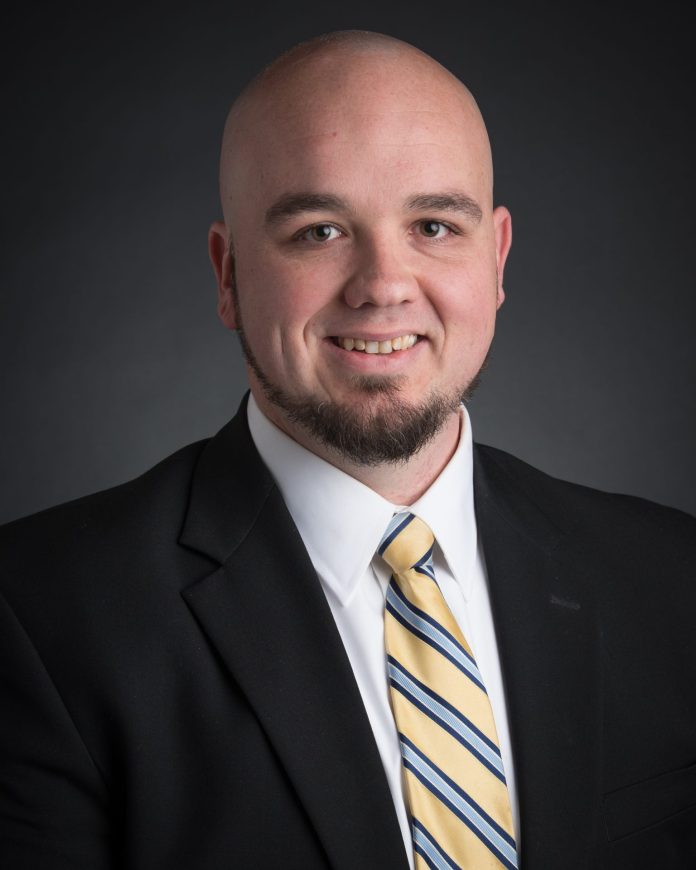Drew Curtis, director of the Psy.D. and M.S. Counseling Psychology Programs at Angelo State University, will speak about Pathological Lying: Science and Practice at 2 p.m. Feb. 13 in the library event space at University of Texas Permian Basin.
It will also be livestreamed over Zoom. The event is presented by Psychology Club/Psi Chi.
UTPB Psychology Lecturer Carol Piper said psychology professor James Olson suggested Curtis.
Piper said lying is something Curtis has spent a lot of time researching.
“He does a lot of research in pathological lying,” Piper said.
He’s written or helped write books and numerous articles on the subject.
“Another thing that he looks at a lot is how to help a clinician or therapist identify when someone perhaps is lying or is a pathological liar, so that they can help them either stop doing it, get better or … sometimes … just identify that they are doing it so that maybe the therapist has a better picture of what’s going on,” Piper said.
Tiffany Collier, also a psychology lecturer, said from what she understands Curtis’ focus is about pathological liars in people who have psychological disorders.
However, she said, pathological lying is not a disorder in itself.
“But that is a potential for future research that could be considered a diagnostic category. At this point, I think the question is more what the other disorder might indicate, so pathological lying could be indicative of other problems,” Collier said.
Piper added that there are certain personality structures that may be more prone to pathological lying. “So I think that the research is more about establishing which of those personality structures might be,” she said.
Collier said anything pathological would imply that there is dysfunction involved.
“It’s understood that people in normal functioning are going to be deceptive here and there. That’s part of human nature. The question is, is the person deceptive to an extent that interferes with their ability to function which really can be at the root of a lot of criminal behavior. It can be a lot in a personal exploitation, just taking advantage of other people. How much is that interfering with that individual’s ability to live day to day. I think that would be where the line is,” Collier said.
Piper said she is interested in what he’s going to say, especially when it comes to distinguishing pathological lying as its own unique disorder.
“This is a phenomenon that we see more and more often. I’m really interested to hear what he has found about it. I’m just excited overall to hear what he has to say because it’s something we know a decent amount about, but maybe we don’t completely understand it. … Like I mentioned, one of the things that some of his research is looking at is how to help counselors and therapists be aware of this and maybe even identify it,” Piper said.
She added that she’s really interested in hearing what Curtis has to say about how to potentially identify someone who is a pathological liar.
“To me, that’s really interesting, because we go through our day-to-day lives and we don’t know if someone’s lying or not. We hope that they’re telling us the truth. So I think that’s really interesting to understand how we can start to identify those who are and those who aren’t. I think that’s a really cool thing that I’m looking forward to,” Piper added.
Collier noted that our natural propensity as human beings is to assume something is truthful, until we have a reason to believe that’s not the case.
“That is one reason that pathological lying can often go unnoticed, is because it’s not something that human beings naturally look for,” Collier added.
When people come in for therapy, Piper said you assume they’re being honest.
Collier said people are “pretty bad” at figuring out what people are like.
“We think we’re good at it, but we’re really not when the research really gets down to it,” she added.
Collier said there is also a question of having healthy skepticism, what degree of skepticism makes us paranoid.
“I don’t think we were looking to stop believing people. But I know that part of his research is just a way to maybe make us a little more aware of things that could be like you said a telltale sign of it,” Piper said.
The event is for all students, staff and faculty on campus and the general public.
“It’s not a necessarily one specific body of people. One of the things we do try to take into account when we invite someone on campus is we do try to pick someone who has a topic that would be of interest to our students,” staff, faculty and the community, Piper said.




